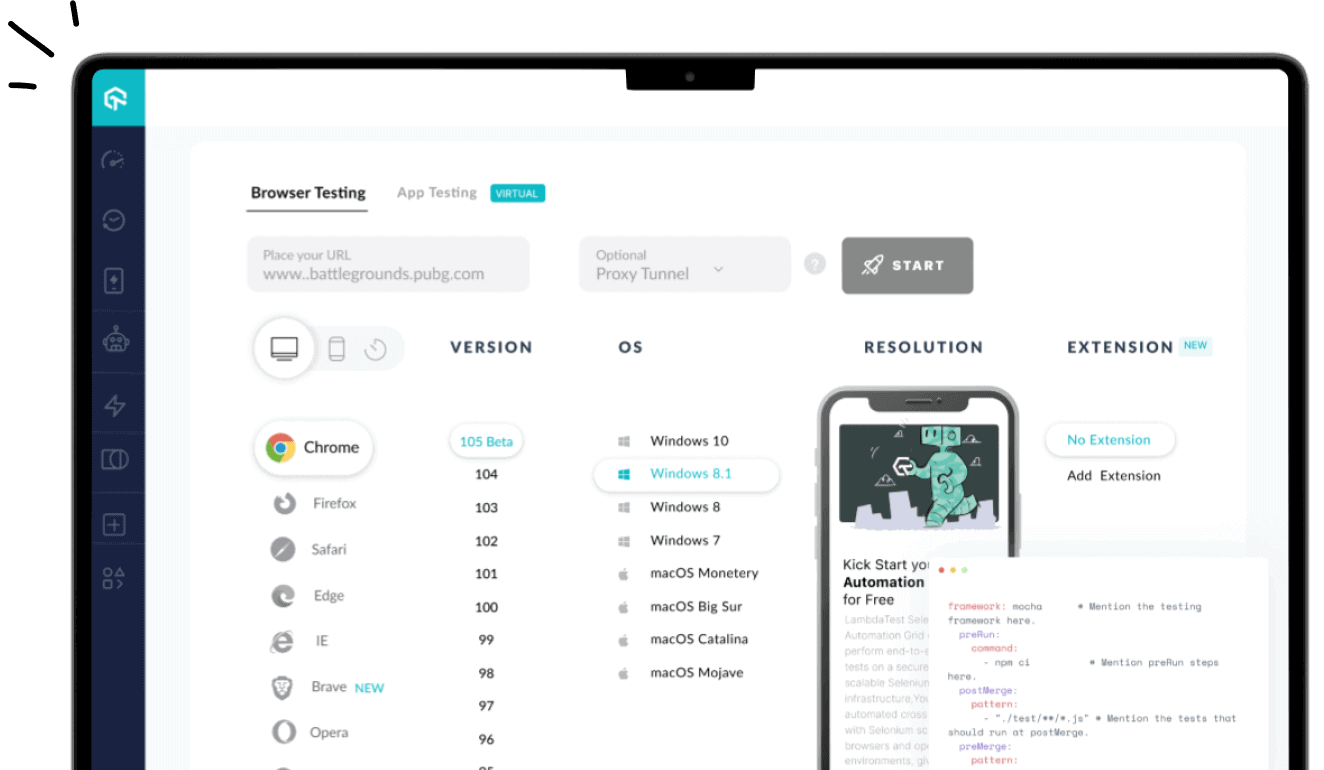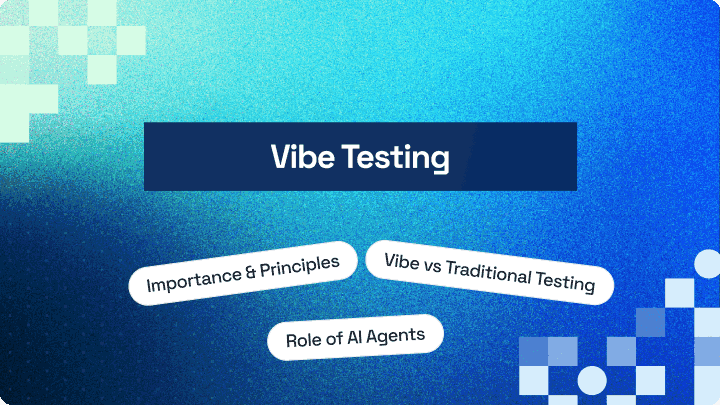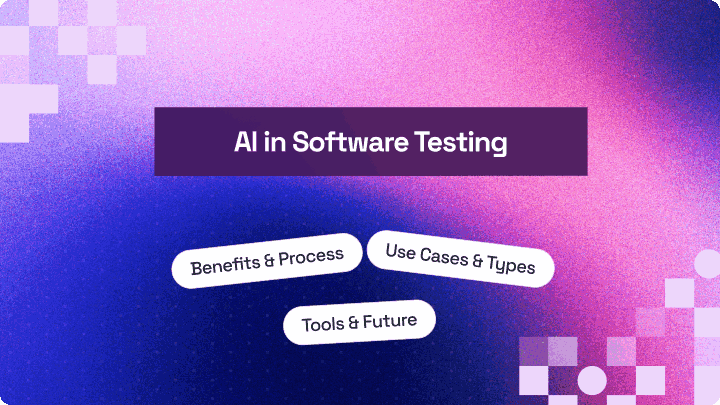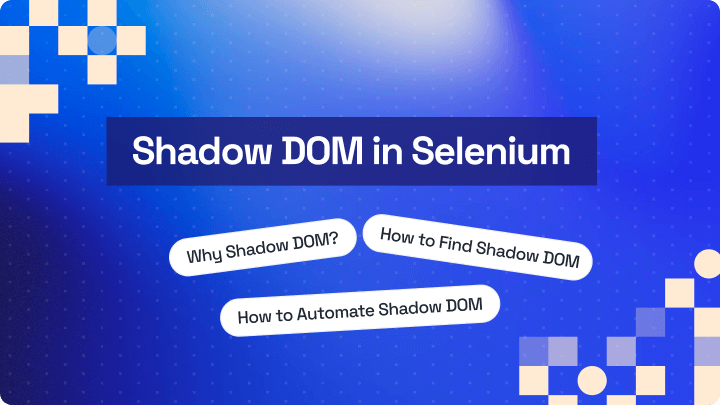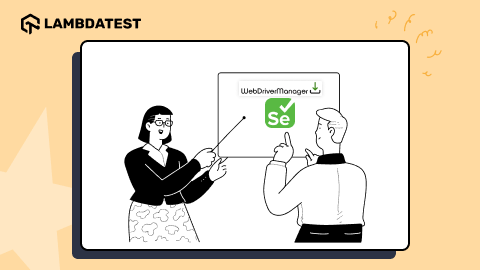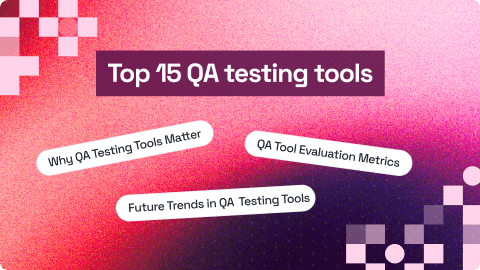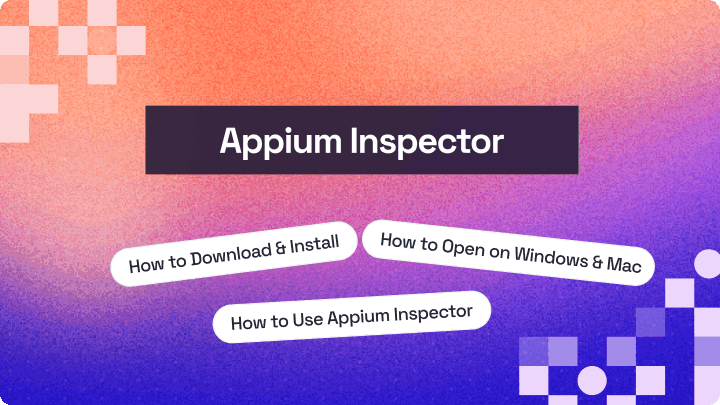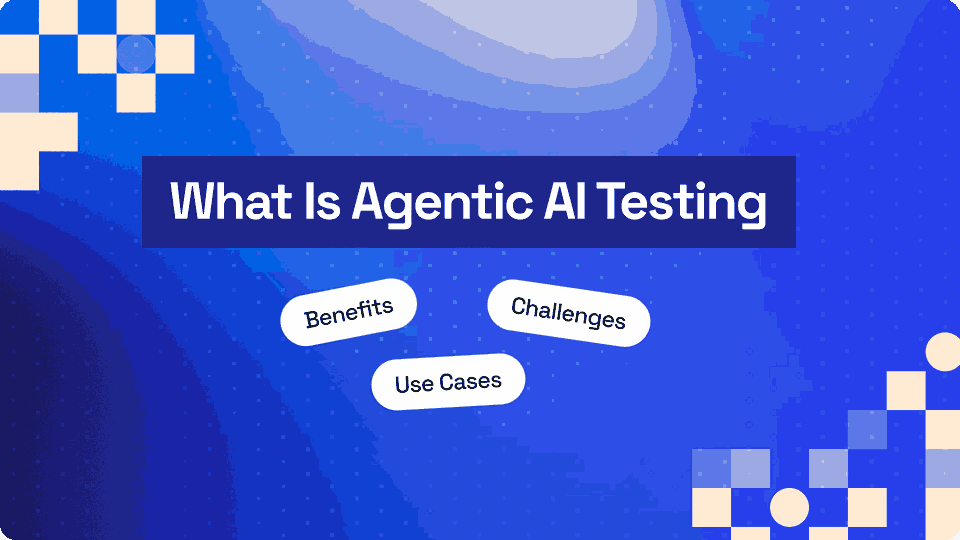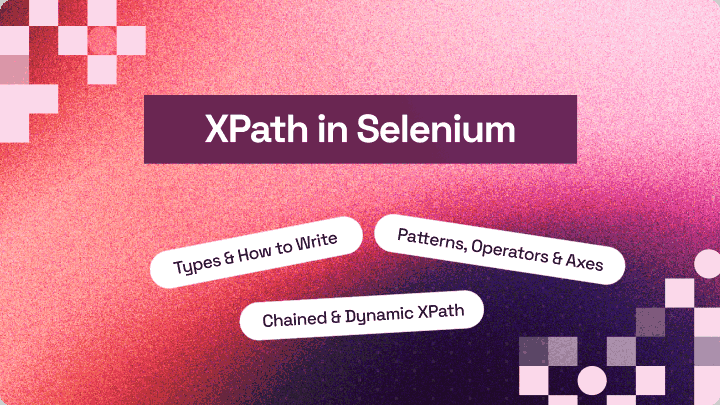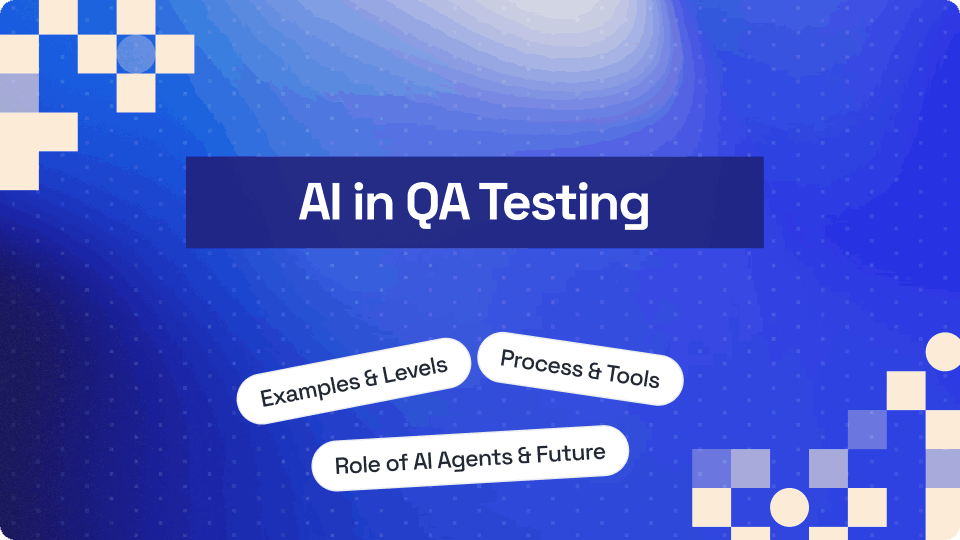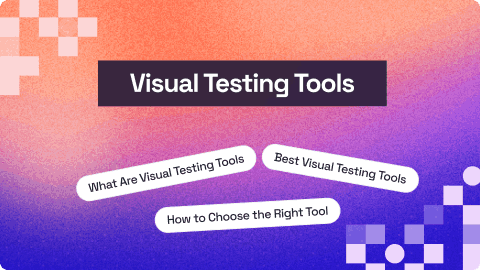19 Best AI Agents to Boost Workflow Automation [2025]
Saniya Gazala
Posted On: August 8, 2025
22 Min
Chapters
- AI Testing
- Generate Test Cases With AI
- Generate Tests With AI
- AI Testing Tools
- Open-Source AI Testing Tools
- AI in Test Automation
- NLP Testing
- Best AI/ChatGPT Prompts for Software Testing
- AI in Mobile Testing
- AI in Regression Testing
- AI in Performance Testing
- AI Agents
- Best AI Agents
- Agentic AI Testing
- AI in DevOps
- AI DevOps Tools
- AI and Accessibility
- AI in Software Testing Podcasts
The best AI agents are a smart way to streamline daily tasks and handle complex work with minimal human input. But with so many options out there, it’s important to focus on the ones that truly deliver. These best AI agents help you automate repetitive work, speed up decision-making, and integrate seamlessly into your daily workflows.
Overview
AI agents act as digital collaborators that can monitor, respond, and manage tasks in real-time. They help reduce manual effort by staying active within systems and workflows.
Some of the Best AI Agents List
- LambdaTest KaneAI: A GenAI-native QA assistant for creating, executing, and managing tests via NLP.
- CrewAI: Orchestrates multiple AI agents for complex workflows.
- Miracle Agent: Oracle AI for enterprise automation and analytics.
- Kozuchi AI Agent: Fujitsu AI that turns discussions into tasks.
- Intuit Assist: Automates finance and lead management in QuickBooks.
- Agentforce: Salesforce platform for autonomous business AI agents.
- Devin: AI software engineer for coding and testing.
- Recall with Copilot Vision: Captures and searches PC activity history.
- AutoGen: Framework for building multi-agent AI systems.
- AutoGPT: Open-source tool for autonomous GPT-powered agents.
Choose the Best AI Agents
Choosing the right AI agent means focusing on task fit, ease of use, scalability, integration support, performance, security, and future readiness, backed by a strong community.
Table of Contents
- What Are AI Agents?
- A Curated List of the Best AI Agents for 2025
- LambdaTest KaneAI
- CrewAI
- Miracle Agent
- Kozuchi AI Agent
- Intuit Assist
- Agentforce
- Devin
- Recall with Copilot Vision
- AutoGen
- AutoGPT
- Operator
- Claude 3.5
- Runner H
- Fellow
- Replit Agent
- Paradox
- Google ADK (Agent Development Kit)
- Agent.ai
- Eureka Agent
- Types of AI Agents
- Selecting Criteria for the Right AI Agents
- Frequently Asked Questions (FAQs)
What Are AI Agents?
AI agents are software-based systems capable of carrying out tasks by processing data, making decisions, and executing actions toward a defined goal. They operate based on predefined rules, statistical models, machine learning, and optimization or decision-making techniques.
At a high level, an AI agent follows a Perception → Decision-making → Action loop:
- Perception: Collect data from the environment using sensors or inputs (e.g., user commands, web data, APIs)
- Decision-making: Write a short, clear label that describes the element’s action or purpose.
- Action: Make sure the label matches what the element actually does.
A Curated List of the Best AI Agents for 2025
Here are some of the best AI agents to help you build and manage real tasks like automation, decision-making, and workflow management. These best AI agents stand out for their reliability, speed, and practical value.
1. LambdaTest KaneAI
LambdaTest KaneAI is a GenAI-native testing agent that allows teams to plan, author, and evolve tests using natural language. It is built from the ground up for high-speed quality engineering teams and integrates seamlessly with the rest of LambdaTest’s offerings around test planning, execution, orchestration, and analysis.
What makes KaneAI one of the best AI agents in the testing space is its end-to-end capability, from intelligent test creation to streamlined execution, all by natural language inputs. With support for web, mobile, and API testing, KaneAI reduces the complexity of modern QA workflows while boosting speed, accuracy, and scalability for engineering teams.
Key features:
- Natural Language Test Authoring: Create tests using plain language commands.
- Native App Testing: Run tests on real Android and iOS devices.
- JavaScript Execution: Insert and run custom JS in web tests.
- API Testing Support: Test backend services directly in the platform.
- Variables Feature: Use dynamic input data for flexible test coverage.
- Proxy & Local Tunnel: Simulate local or regional test environments.
- Code Generation: Auto-generate Selenium test scripts in Java.
2. CrewAI
CrewAI is a framework for building collaborative, multi-agent AI systems capable of handling complex tasks through coordination. It allows users to assign roles, responsibilities, and workflows to different agents that work together like a team. As one of the best AI agents for orchestrating task-based automation, CrewAI helps businesses build intelligent agent teams for research, planning, analysis, and execution.
Key features:
- Agent Role Assignment: Define specific roles and responsibilities for each AI agent.
- Task Routing: Delegate tasks dynamically between agents based on context.
- Multi-Agent Collaboration: Coordinate workflows across multiple agents.
- Sequential and Parallel Execution: Execute tasks in step-by-step or concurrent order.
- Built-in Memory Support: Maintain agent context across long workflows.
- Tool Integration: Connect agents with external APIs and tools to complete tasks.
3. Miracle Agent
Oracle’s Miracle Agent is an AI-powered suite in Oracle Fusion Applications made to help manage business tasks in HR, finance, sales, and supply chains. It uses automation, machine learning, and predictive analytics to make work easier and improve flow, earning its place among the best AI agents for enterprise operations.
Key features:
- Automation in Business: Automation of repetitive business tasks.
- Predictive Insights: Predictive analytics powered by machine learning.
- Workflow Optimization: Workflow optimization and process improvement identification.
4. Kozuchi AI Agent
Fujitsu Kozuchi is a secure, cloud-based suite of AI services that combines generative AI, AutoML, human sensing, and causal discovery with Fujitsu’s powerful computing infrastructure. Its ability to support diverse business functions with advanced AI capabilities places it among the best AI agents available for enterprise innovation.
Key features:
- Generative AI: Processes natural language and unstructured data.
- AutoML: Builds and tunes ML models automatically.
- Predictive Analytics: Forecasts demand using ensemble models.
- AI Trust: Checks data fairness and AI decisions.
- XAI (Explainable AI): Explains AI outputs with causal reasoning.
5. Intuit Assist
Intuit Assist is an AI-powered financial assistant built to help individuals and small businesses manage money easily. It simplifies everyday tasks, offers customized money tips, and makes jobs like billing, tracking expenses, and managing cash flow smoother. With seamless integration into Intuit’s ecosystem, it stands out as one of the best AI agents for financial planning and small business support.
Key features:
- Automates Money Jobs: Handles invoicing, expense sorting, and cash flow tracking.
- Changes Business Communication: Turns emails and documents into bills or estimates.
- Invoice Follow-ups: Creates personalized reminders for overdue payments.
- Extracts and Categorizes Expenses: Auto-fills receipt data into QuickBooks.
- Provides Data-Driven Insights: Delivers personalized, data-backed money suggestions.
6. Agentforce
Agentforce is Salesforce’s autonomous AI platform designed to enhance business operations by creating and deploying AI agents capable of performing specialized tasks. These agents utilize large language models to autonomously analyze customer interactions and execute appropriate actions, thereby improving efficiency and customer satisfaction. It stands out as one of the best AI agents for enterprise-level automation.
Key features:
- AI Agent Builder: Creates task-specific agents for various business roles.
- Data Integration: Connects Salesforce CRM and external Data Cloud sources.
- Omnichannel Deployment: Runs across portals, chat, and messaging platforms.
- Autonomous Decision-Making: Selects and executes optimal actions from interactions.
- Security & Compliance: Follows enterprise-grade security and policy standards.
7. Devin
Devin is an intelligent AI tool designed to help engineering teams streamline tasks and increase productivity. It understands natural language and can handle tasks like code refactoring, data analysis, and software development. By integrating seamlessly into existing workflows, Devin takes over complex and repetitive tasks, allowing engineers to focus on more strategic work.
Key features:
- Natural Language Interaction: Assign tasks using plain language.
- Code Refactoring: Automates code migration and restructuring.
- Data Engineering: Manages ETL, preprocessing, and data workflows.
- Dev Support: Aids in bug fixes, testing, and SaaS integrations.
- Adaptive Learning: Adjusts to workflows based on user feedback.
8. Recall with Copilot Vision
Recall with Copilot Vision is a Windows feature that uses AI to help users find and revisit previously viewed content on their PC. It captures screen activity at intervals and enables quick search and retrieval through visual and semantic tools, making it one of the best AI agents for personal productivity and information recall.
Key features:
- Screen Activity Snapshots: Captures screen images at regular intervals and stores them locally.
- Semantic Search: Lets users search past activity using keywords or context.
- Timeline Navigation: Visual timeline to browse through historical activity.
- Click to Do: Suggests follow-up actions based on recalled content.
- Local Processing: All data is stored and processed locally for privacy.
9. AutoGen
AutoGen is an AI framework developed by Microsoft for building scalable, event-driven multi-agent applications. It enables developers to create, orchestrate, and manage multiple AI agents using a modular API stack. With support for asynchronous messaging, conversational workflows, third-party integrations, and no-code tools, AutoGen streamlines the development of collaborative agentic systems for complex tasks and serves as a foundation for building some of the best AI agents in production today.
Key features:
- Layered API Structure: Includes Core, AgentChat, and Extensions APIs.
- AgentChat Framework: Builds and coordinates conversational agent teams.
- Core API: Supports async messaging and event-driven workflows.
- Extensions Package: Integrates with OpenAI, Azure, and other tools.
- Studio Application: No-code interface for agent prototyping and management.
10. AutoGPT
AutoGPT is an AI platform designed to build, deploy, and manage continuous AI agents for automating complex tasks across domains. It supports low-code workflow creation, persistent cloud-based agents, and integration with external tools, making it one of the best AI agents for scalable and autonomous task execution.
Key features:
- Low-Code Workflows: Create complex processes with minimal code.
- Continuous Agents: Deploy always-on, trigger-based autonomous agents.
- Reliable Execution: Enforce constraints for predictable task outcomes.
- Optimized Efficiency: Use non-agentic flows to speed up execution.
- Service Integration: Connect with external tools and AI models easily.
11. Operator
Operator is an AI agent developed by OpenAI that automates complex and repetitive tasks directly in the browser. It mimics human interactions by typing, clicking, and scrolling across websites to complete workflows like filling out forms, ordering items, or booking services. By replicating human input and learning from its actions, Operator ranks high among the best AI agents built for hands-free browser task execution.
Key features:
- Browser-Based Automation: Handles web tasks like form-filling and online orders.
- Workflow Personalization: Adapts to specific websites and recurring tasks.
- Self-Correction: Detects and fixes its own errors, with fallback to user input.
- Privacy & Safety: Includes user controls and built-in privacy protections.
12. Claude 3.5
Claude 3.5 Sonnet is a state-of-the-art AI model developed by Anthropic, optimized for advanced reasoning, programming, multilingual understanding, and visual interpretation. It delivers high performance across academic, coding, and multimodal benchmarks, securing its place among the best AI agents for complex, high-level tasks.
Key features:
- Reasoning and Q&A: Achieves 59.4% on GPQA and 90.4% on MMLU for complex queries.
- Coding Proficiency: Scores 92.0% in Python tasks on HumanEval.
- Multilingual Math: Solves math problems across languages with 91.6% accuracy on MGSM.
- Vision Capabilities: Interprets charts and images for use in data-heavy contexts.
13. Runner H
Runner H is a smart AI agent by H that simplifies web tasks using natural language commands. It allows users to set up workflows like web testing and process automation with ease. Its ability to adapt to dynamic web interfaces using advanced AI models places it among the best AI agents for reliable and flexible web automation.
Key features:
- Automates Web Interactions: Creates automation flows using plain language.
- Adapts to UI Changes: Adjusts to changes in web interfaces automatically.
- Integrates Seamlessly: Connects with various tools and workflows.
- Enhances Productivity: Minimizes time spent on repetitive web actions.
 Note
NoteBuild, manage, and execute smarter tests with GenAI-native test agent. Try KaneAI Today!
14. Fellow
Fellow is an AI-powered meeting assistant designed to improve team collaboration and meeting efficiency. It integrates with platforms like Google Meet, Zoom, and Microsoft Teams to automate meeting tasks such as note-taking, agenda creation, and follow-up. By supporting every stage of the meeting lifecycle, planning, execution, and recap, it stands out as one of the best AI agents for boosting team productivity and alignment.
Key features:
- AI Note Taker: Records, transcribes, and summarizes meetings across major platforms.
- Ask Fellow: Retrieves answers from past meeting notes and transcripts.
- AI Agenda Builder: Creates agendas from meeting titles and calendar details.
- AI Suggested Topics: Recommends agenda items in real-time during meetings.
- AI Meeting Recaps: Sends recap emails with recordings, transcripts, and summaries.
15. Replit Agent
Replit Agent is an AI-powered coding assistant built into the Replit platform, enabling users to turn natural language prompts into fully functional software. It supports the entire development lifecycle, from writing code and managing dependencies to previewing UI, making it ideal for both beginners and experienced developers looking to build quickly and interactively.
Key features:
- Natural Language Processing: Converts plain-language prompts into code.
- Automated Code Generation: Builds applications, features, and API integrations.
- Interactive Chat Interface: Clarifies input and refines outputs through dialogue.
- Environment Setup: Auto-configures runtime environments and dependencies.
- UI Previews: Shows live interface previews during development.
16. Paradox
Paradox is an AI-powered hiring assistant designed to automate and simplify key parts of the recruitment process. It helps companies engage candidates, manage hiring workflows, and reduce administrative overhead through conversational interfaces across every stage of talent acquisition. Recognized as one of the best AI agents in HR tech, Paradox simplifies hiring while enhancing candidate experience.
Key features:
- Conversational ATS: Mobile-first applicant tracking system for frontline hiring.
- Conversational CRM: Organizes and pipelines qualified candidates.
- Conversational Career Sites: Delivers 24/7 dynamic candidate experiences.
- Conversational Apply: Streamlines applications and screening via chat.
- Conversational Scheduling: Automates interview scheduling tasks.
- Conversational Events: Manages recruiting events with automated workflows.
17. Google ADK (Agent Development Kit)
Google ADK (Agent Development Kit) is a framework that allows developers to build, customize, and deploy AI agents using Google’s infrastructure and foundation models. It supports the development of specialized, autonomous agents integrated with Google tools and services, making it a strong foundation for building some of the best AI agents in production environments.
Key features:
- Custom Agent Framework: Build specialized AI agents for various tasks.
- Foundation Model Access: Leverages Gemini and other Google LLMs.
- Tool and API Integration: Supports integration with external tools and APIs.
- Memory and State Management: Enables agents to retain and manage context.
- Multi-Modal Support: Allows agents to process text, images, and more.
18. Agent.ai
Agent.ai is a professional network and marketplace dedicated to the discovery, creation, and deployment of AI agents. The platform allows users to explore a diverse catalog of AI agents for specific tasks, hire them on demand, or build custom agents using intuitive tools. With its growing ecosystem and task-specific focus, Agent.ai has become a go-to hub for accessing some of the best AI agents in the emerging agent economy.
Key features:
- Agent Network: Browse and connect with a wide range of AI agents.
- Builder Network: Collaborate with developers and showcase custom agents.
- Agent Builder: Create AI agents with minimal technical expertise.
- Marketplace Integration: Hire and deploy agents for specific tasks.
19. Eureka Agent
Eureka is one of the best AI agents developed by NVIDIA Research that autonomously generates reward algorithms to train robots using reinforcement learning. Powered by GPT-4, Eureka removes the need for manual reward function design, enabling robots to acquire complex physical skills across a wide range of tasks and hardware configurations.
Key features:
- Autonomous Reward Generation: Uses GPT-4 to create custom reward programs.
- Learning Efficiency: Outperforms human-designed rewards in most tasks.
- Self-Improving Mechanism: Refines rewards based on training outcomes.
- Multi-Robot Training: Supports diverse platforms like hands, arms, drones, and legs.
- Isaac Gym Integration: Uses GPU-accelerated simulation for fast evaluation.
Types of AI Agents
AI agents are systems that perceive their environment and take actions to achieve specific goals. They are categorized based on their complexity and capabilities:
- Simple Reflex Agents: Operate on condition-action rules, responding to current inputs without memory. Example: email auto-responders.
- Model-Based Reflex Agents: Use an internal model to handle partial observability. Example: network monitoring tools.
- Goal-Based Agents: Choose actions to achieve specific goals. Example: navigation systems compute optimal routes.
- Utility-Based Agents: Evaluate outcomes to maximize utility. Example: systems balancing speed, cost, and safety.
- Learning Agents: Improve through feedback and experience. Example: defect detection systems refining accuracy over time.
- Multi-Agent Systems (MAS): Groups of agents working independently or collaboratively. Example: coordinated task-solving in teams.
- Hierarchical Agents: Break decision-making into levels. Example: top-level agents manage production while others control individual machines.
Understanding these types of AI agents is crucial for designing systems that effectively address specific problems and adapt to various environments.
Selecting Criteria for the Right AI Agents
Choosing the right AI agent depends on how well it aligns with your specific workflow and goals.
Here are the key factors to consider:
- Task Fit: Ensure the agent is designed for the type of work you need, whether it’s coding, testing, scheduling, or decision-making.
- Integration Support: Look for agents that easily plug into your existing tools, platforms, or APIs without complex setups.
- Performance and Reliability: Prioritize agents known for consistent results, fast response times, and low error rates in real-world usage.
- Ease of Use: Choose tools with intuitive interfaces or no-code/low-code options so you don’t need deep technical expertise.
- Scalability: Select agents that can grow with your needs, supporting more users, data, or tasks over time.
- Security and Privacy: Make sure the agent handles your data safely and complies with industry standards or internal policies.
- Community and Support: A strong user community, documentation, and vendor support are essential for long-term success.
Evaluating AI agents against these criteria helps ensure you select a solution that’s both effective today and adaptable for the future.
Conclusion
AI agents help businesses complete tasks faster, with less effort, and greater precision. They integrate with various systems to improve speed, accuracy, and efficiency. By automating repetitive work, these agents free up teams to focus on strategic, high-value tasks, boosting overall productivity.
As AI continues to evolve, selecting the right agent depends on a company’s specific needs and goals. Choosing from the best AI agents ensures smoother workflows, better decision-making, and long-term growth. Businesses that embrace AI automation through the best tools will stay ahead, efficient, agile, and competitive.
Frequently Asked Questions (FAQs)
Which AI agent is best for automating UI testing?
LambdaTest KaneAI is a strong choice for UI testing. It allows you to create automated tests using natural language commands, making it beginner-friendly while still powerful for experienced testers. It also supports real device execution across both web and mobile platforms, ensuring accurate and reliable results.
Can I use multiple AI agents together in a single workflow?
Yes, tools like AutoGen are designed specifically for multi-agent orchestration. This means you can combine different agents to handle separate steps of a larger, more complex task. By working collaboratively, these agents can coordinate and pass information between each other to achieve better efficiency.
Are there AI agents suitable for small teams or solo developers?
Absolutely. Platforms like Replit Agent, Intuit Assist, and Agent.ai are great for individuals or small teams. They offer user-friendly interfaces and automation features that don’t require deep technical expertise. This makes them ideal for streamlining workflows without heavy setup costs or complexity.
Do AI agents replace human decision-making entirely?
Not entirely. While AI agents can automate repetitive or data-driven decisions, they still rely on human input for strategic thinking and oversight. In complex workflows, humans remain essential for handling exceptions, ensuring accuracy, and guiding overall direction.
What kinds of tasks can AI agents automate beyond coding or testing?
AI agents can handle a wide variety of business processes beyond development tasks. They can assist with hiring, finances, scheduling, marketing, and content generation. For example, platforms like Paradox manage HR workflows, while Intuit Assist focuses on accounting and expense tracking.
How do I know if an AI agent fits into my existing tools?
Look for API support, prebuilt integrations, or no-code setup options. Many AI agents are designed to connect easily with popular platforms like Salesforce, GitHub, Slack, and other business tools. This ensures minimal disruption when adding them to your current workflow.
Do AI agents require coding skills to set up or manage?
Not always. Many modern AI agents offer visual builders, drag-and-drop workflows, or natural language input to create and customize tasks. This allows non-technical users to configure and manage them without writing a single line of code.
Are AI agents secure for handling private or sensitive data?
Trusted AI platforms use strong encryption, secure storage, and compliance with privacy laws like GDPR. Some also support on-device processing to ensure sensitive information never leaves your system. Always review the vendor’s privacy documentation before implementation.
How fast do AI agents adapt to new tasks or data?
Adaptive agents such as Devin or Claude 3.5 can learn quickly from user behavior and feedback. Some improve automatically over time, while others require occasional configuration updates to handle new scenarios. The speed of adaptation depends on the platform and learning model used.
What’s the main advantage of using AI agents in a business?
AI agents help reduce repetitive work, minimize human errors, and scale operations efficiently without adding more staff. By taking over routine tasks, they free up teams to focus on higher-value, creative, or strategic initiatives that drive growth.
Author

